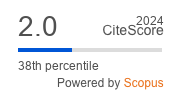Academic model of trauma healing in post-war societies
DOI:
https://doi.org/10.5644/ama2006-124.103Keywords:
Post-war societies, Trauma healing, Academic reconstructionAbstract
Objective. The aim of this paper is to examine the implications for healing in a contemporary Balkan post-war context, and to provide a bridge-building model of trauma transformation, reconciliation and recovery through academic reconstruction and cross-border dialogue. Post-war societies are marked by the effects of massive, large group traumatization, and if not properly dealt with, long-term rehabilitation and social recovery cannot be expected. Unprocessed cumulative trauma that has become deeply embedded in the collective memory of the Balkan peoples over centuries, „chosen trauma“, its trans-generational transmission and periodical reactivations across the Balkan have often been addressed in recent literature, in ethno-psychology, psychoanalysis, psychiatry, sociology and anthropology. In order to deepen our understanding of the roots of collective (social) trauma and the specific traumatic experiences of different groups, and to offer different perspectives and information on how trauma can be dealt with, the “Trauma Trust Memory” multinational interdisciplinary research network is being established, and a groundbreaking workshop was held in May 2013 in Tuzla, Bosnia-Herzegovina. Conclusion. The Tuzla Workshop showed that the active participation of affected groups in adequate coping with the past is required for post-conflict reconstruction, trauma healing and peacebuilding in the long run.Downloads
Published
11.05.2014
Issue
Section
Short Communication
How to Cite
Academic model of trauma healing in post-war societies. (2014). Acta Medica Academica, 43(1). https://doi.org/10.5644/ama2006-124.103





